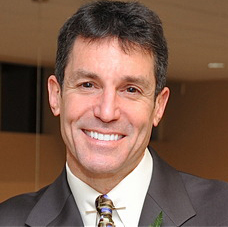A Call to Health Professionals: Take Back Control of Our Nation's Diet
By David Katz and Stacia Clinton
January 7th saw the long-awaited release of the 2015 Dietary Guidelines, much to the dismay of public health, environmental advocates, and clinicians alike. The guidelines include a vague set of recommendations articulating healthy eating as long as it does not upset food industry interests.
This is a disappointment given that the scientific report released by the Dietary Guidelines Advisory Committee addressed the social and environmental context within which our food choices are made. This included the recognition that consumption drives sea and agricultural production and impacts available resources, like water, necessary to maintain our food security. Based on existing research, this expert committee of nutrition and public health experts advised that Americans consume less red and processed meat to protect both the public’s health and the environment.
The report was subsequently attacked by the meat industry and its allies in Congress with success as the final Guidelines were devoid of recommendations reflecting this important systemic perspective. The power of the food industry proved more influential than the experience of years of scientific and public health research and the clinical expertise of the Advisory Committee.
It is time for the science and health community to take back authority over our nation’s diets.
Hailed as recommendations focused on “prevention”, the guidelines pay no attention to current rates of meat consumption or how these patterns support industrialized meat production, and all the antibiotics that go with it. Nor do they recognize the higher rates of cancers – such as leukemia, non-Hodgkin’s Lymphoma, multiple myeloma, or soft tissue sarcoma – identified in conventional farming communities where the use of toxic pesticides are standard practice. Aren’t antibiotic-resistant infections and cancer considered preventable illnesses?
Although passive, the recognition that the evidence is strong to signify that diets with less meat are associated with reduced risk of heart disease and stroke is a good one. The guidelines outline that a 2,000-calorie diet should be limited to 26 ounces of meat, poultry and eggs per week or 3.7oz per day, nearly half the current consumption rate. This recommendation is consistent with the benchmark goal of the Healthier Hospitals' Less Meat Better Meat Challenge where over 400 hospitals have taken the initiative to limit the amount of meat served per meal to no more than an average of 1.5oz. Sustainable sources of meat are prioritized to boot.
Advocating for small dietary shifts, the guidelines reference a comparison between our current consumption patterns and that of the recommendations. They fail to address the agricultural implications of continuing business as usual.
The guidelines “strategies for action”, do contain promising recommendation to “foster partnerships with food producers, suppliers, and retailers to increase access to foods that align with the Dietary Guidelines”. However, to achieve these recommended dietary shifts we need to transform our agricultural policy supported through shifts in food purchasing by institutions, governmental agencies, and consumers alike. It is irresponsible to put forth recommendations that guide the consumption and therefore the purchasing patterns of the entire country without taking into account the policies that address our ability to produce and make affordable the recommended items. As written these guidelines set U.S. citizens up for failure in meeting the recommendations.
As the health care community you have a unique opportunity to take back the nutrition guidance offered to the public through the recommendations you make to patients, the policies you support, and the actions you take in your affiliated institutions. As follow-up to the letter of support for the original recommendations made by the expert Advisory Committee submitted by 700 health professionals, take the next step in favor of the food system we all envision, one that supports dietary recommendations supportive of human and planetary health and informed by science, not politics.
You can take action by:
- Seeking adoption of the Healthy Food in Health Care Pledge by your affiliated organizations to guide their institutional purchases in favor of a diet healthy for people and the planet.
- Endorsing the principles of the True Health Initiative which include 6 statements of consensus from the globe’s leading nutrition and health professionals and independent of industry influence.
 David L. Katz, MD, MPH, FACPM, FACP, FACLM is the Founder of True Health Initiative, and Director and Co-Founder of the Yale University Prevention Research Center
David L. Katz, MD, MPH, FACPM, FACP, FACLM is the Founder of True Health Initiative, and Director and Co-Founder of the Yale University Prevention Research Center
 Stacia Clinton, RD. LDN is the National Program Director of Health Care Without Harm's Healthy Food in Health Care program.
Stacia Clinton, RD. LDN is the National Program Director of Health Care Without Harm's Healthy Food in Health Care program.
